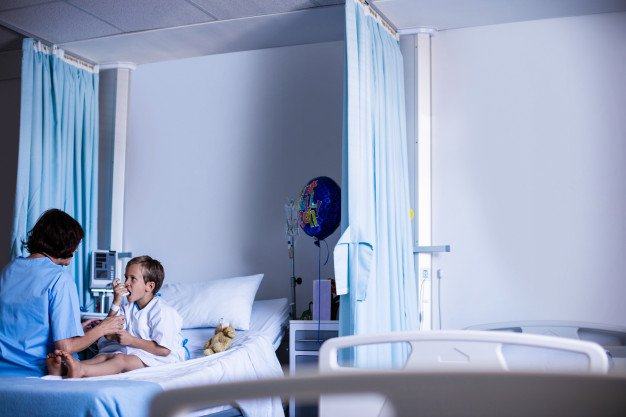
Photo Credit: Freepik
When asthma patients do not use the correct medication or follow up regularly with their regular doctors, they may turn up repeatedly at emergency departments (ED) for severe symptoms like breathing difficulties, which can sometimes be life-threatening. At Singapore General Hospital (SGH), almost 50 percent of the asthma patients at ED show up at night or early hours in the morning.
To reduce ED visits and hospitalisations, SGH, in collaboration with AstraZeneca, piloted a new model of care known as Asthma-COPD Afterhours Respiratory Nurse at Emergency or A-CARE in 2018 to empower asthma patients to better manage their condition.
Dr Kenneth Tan, Head and Senior Consultant, Department of Emergency Medicine at SGH says, it's essential to educate asthma patients on better care & control measures after being discharged from the hospital following medical treatment for an asthma attack.
Under A-CARE, an SGH nurse trained in asthma care worked three nights a week in the ED. She taught patients how to use their inhalers correctly, provided brief asthma education and issued self-management plans to patients. The nurse discussed with ED physicians to make joint patient care decisions, made recommendations for asthma inhaler therapy and appropriate post discharge follow-up.
Findings from the 17-month pilot showed that the joint care by the A-CARE nurse and ED physician has led to the following:
In addition, patients who received counselling by A-CARE nurse were more likely to turn up for a follow up respiratory specialist appointment compared to those who did not (40% up from 15%).
Associate Professor Koh Siyue Mariko, Senior Consultant, Department of Respiratory and Critical Care Medicine at SGH, on the results and future plan: “We are very encouraged by the positive results of A-CARE, and will build on the success of the pilot model to introduce A-CARE 2.0 or TRAINED. TRAINED aims to train ED staff in asthma counselling so that all asthma patients being admitted to SGH ED will be reviewed by a trained asthma nurse, regardless of the day of week or time of admission. We hope that this will ensure sustainability of the best practices and further improve outcomes of asthma patients in Singapore.”
Vinod Narayanan, Country President at AstraZeneca Singapore, said: “We are thrilled to see such promising findings from the initial A-CARE programme and are pleased that we are able to roll out the TRAINED programme soon to optimise the patient experience further. As a global, science-led biopharmaceutical business, we know that acute hospital admissions for severe-life threatening asthma attack is a global issue that many health systems have to deal with. This is why we invest in initiatives like A-CARE and TRAINED through our Healthy Lung Programme.”
The findings of the A-CARE model are published in the British Medical Journal Open Quality journal, a leading international peer-reviewed publication. The collaboration with SGH is also part of AstraZeneca’s Healthy Lung Programme, a programme designed to build local health systems to support the diagnosis and treatment of respiratory diseases.




